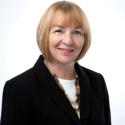2024 Professional Counsellors Network
- Image

The European Professional Counsellors Network is for professional counsellors and professional counsellors in training. This Network is a unique gathering of people with a Kingdom calling to soul care—specifically the mental, emotional, and spiritual health of others. Our theoretical training may include cognitive, behavioral, attachment, relational, or family systems. It may be within Christian, non-Christian, or even anti-Christian contexts, whether in academic, clinical, residential, or social systems settings.
The programme will feature lectures, small group discussions, and case studies. Each lecture will be followed by a time of questions and answers. Case studies will also offer break-out groups to provide a more participatory style of learning. Prior preparation will be set for all applicants.
What Network Participants Are Saying
- "I have felt so deeply and fully loved through the teachings the Forum's Professional Counsellors Network has provided. I have felt heard, listened to, and challenged. The Forum has not only better equipped me for my work by making me ask deeper questions about God and sharing it with others in my workplace. It has also enabled me to know and experience and grow a desire to know God’s love in an even deeper way. I am excited and eager to see where the desire and ideas that stirred in my heart lead to in the work done to advance His kingdom in Slovenia and beyond."
- Anja Zevart, Psychiatry Resident Doctor, Slovenia - “Being at the European Leadership Forum is so helpful for me. The Professional Counsellors Network is equipping and enabling me to better approach the struggles that accompany being a counsellor. I’m fed and provided with lots of resources, shared knowledge, and updated and validated approaches in our field. These new resources and knowledge help me to deliver better Christ-centered therapy in order to help my clients in need.”
- Lidia Leahu, Professional Counsellor, Romania
Network members should be working in the field of psychology for a minimum of 10 hours a week or a minimum of 7 clients. Students and interns may apply if they are full time students. This Network will examine the biblical framework for Christian counselling and will involve daily lectures as well as case study discussions.
Network Leadership
Network Speakers
Snezana Andjelic grew up in a Christian home in Yugoslavia, which is today's Serbia. She studied psychology in Germany and trauma in the USA. Snezana is a Gestalt psychotherapist and children’s psychoanalyst specialising in trauma. At the moment, she is working as a Trauma Care Advisor for the… Read more
Nicolene Joubert, PhD, is an Adjunct Professor of Christian Psychology and Counseling at Houston Christian University. She holds a PhD in Psychology (North-West University, South Africa), a Master of Arts in Theological Studies (Trinity International University, Ill.), and a Master of Arts… Read more
Jelena Sivulka hails from Serbia, where she was born and raised. She obtained her master's degrees in psychology and theology from her homeland. Thirty years ago, she embraced Christianity, igniting a passion for ministry alongside her husband Greg. Together, they have been instrumental in… Read more
Network Programme
Sunday, 26 May
A traumatic experience is unique and extremely powerful. Understanding trauma helps us recognize the behaviors of those who are deeply suffering. The impact of traumatic experience changes us forever. Approaching those who experience trauma requires knowledge and specific skills to which you will be introduced in this session.
Early attachment trauma is a familiar topic and ample research studies have been done on its long-term impact on human functioning. But how does development throughout the lifespan impact attachment? What are the key points where attachment can go wrong? How can we fix it? What happens when a serious illness is diagnosed? What happens in old age? How do we intervene in the lives of the elderly when attachments are lost, and anxiety sets in? How can emotional security be restored? Compassion-based attachment theory provides an approach that could be implemented to treat attachment struggles and disconnection throughout the lifespan. In this session, these questions are addressed by means of theory, practical application and case studies.
Monday, 27 May
Do you have clearly formulated assumptions when you enter a counselling session? Do you make decisions about treatment very swiftly? Professional, and pastoral counsellors generally enter the counselling relationship with certain assumptions. These assumptions may be known or implicit. They are necessary but may lead to presumptuous errors. Counsellors and therapists often make the mistake of “immediately” acting on the presenting problem because they assume they know what’s best for the client. Whole-person assessment focuses on the sharpening of observational, listening and probing skills. These skills provide a key to a deeper connection with the whole person presenting “a” problem and lead to more effective choices of interventions.
What is transgenerational trauma? How can we recognise and diagnose it in those we work with? This session will explore what transgenerational trauma is and provide counsellors with the tools to diagnose it and help those we serve experience healing.
Tuesday, 28 May
As humans, we are impacted by the pain and suffering of others. God created us with the capacity to feel people’s pain. Exposure to a traumatized society puts us in danger of becoming traumatized ourselves. Feeling things we didn't experience means living the traumas of those we serve. In this session, we will talk about secondary trauma’s impact on Christian leaders and what practical things we can do to address compassion fatigue and burnout.
Therapy is all about change. According to The Transtheoretical Model (TTM), change is a process and occurs in stages. Being saved by Jesus Christ is the most dramatic and permanent change one can experience, but the journey does not end with justification. Sanctification and transformation should follow. How do we align our professional view of change with being justified by faith alone and transformed by Christ? Cognitive-behavioral-emotional and relational aspects of change will be addressed based on psychotherapeutic strategies and Christopraxis (lived experience of divine action). A biblically based scientifically informed change therapy will be presented and demonstrated through practical exercises and case study discussions.
Wednesday, 29 May
How can we help those experiencing mental disorders make sense of their suffering without losing confidence in God's power and goodness? In what ways do our beliefs about why God allows suffering affect our relationship with God and our ability to find meaning and healing in suffering? In this session, we will explore these questions and consider the crucial role that the church plays in helping those who suffer find hope and healing.
What is collective trauma? How do things like wars and natural catastrophes impact a whole community? In this session, we will explore what collective trauma is and how understanding it can help us support people in breaking the circle of violence and loyalty to a destructive community.



